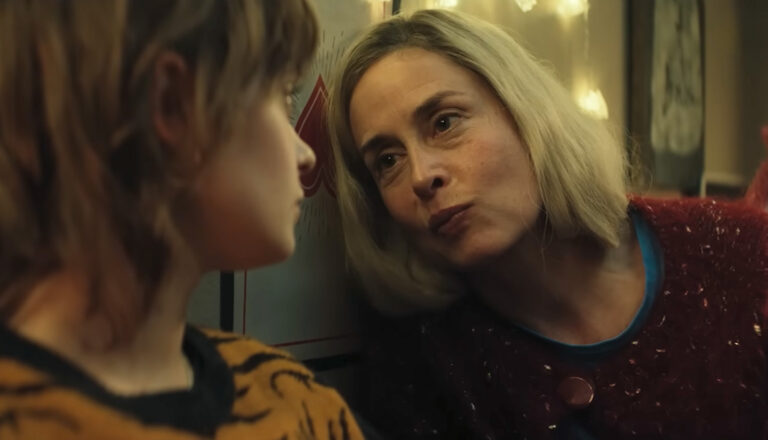
Unfamiliar
Filled with gritty violence and foul language, when it comes to this German spy drama, “unfamiliar” is how most viewers should stay.
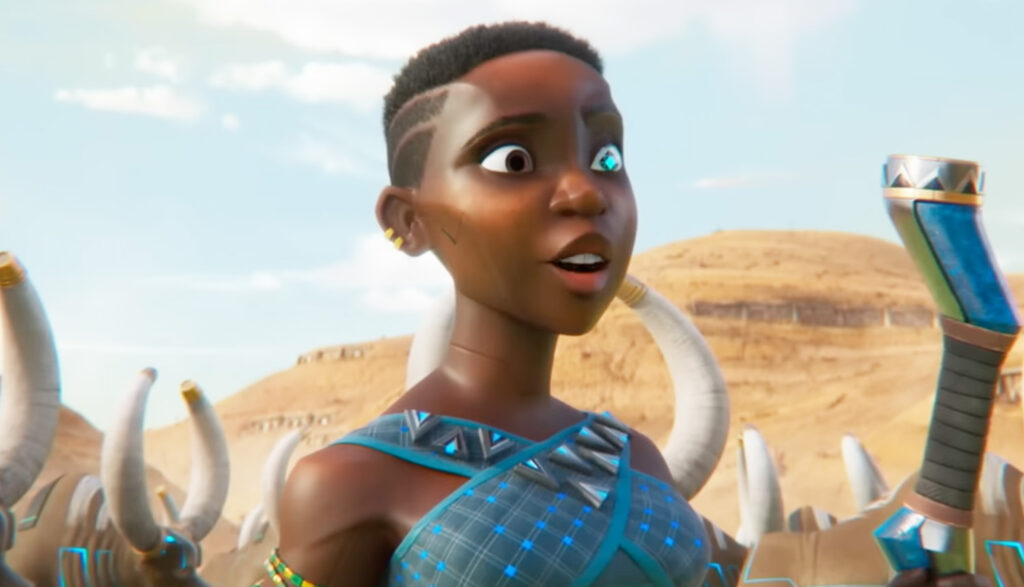
It seems futuristic societies are all the rage right now. From Ready Player One to The Matrix, we’ve long been obsessed with technology and what it might look like in the future.
But American culture isn’t alone in this interest of tomorrow.
Through its 10 short films created by different artists, Kizazi Moto: Generation Fire invites us to learn about Africa’s vision of the future.
The show, which boasts Peter Ramsey (director of Spider-Man: Into the Spider-Verse) as its executive producer, combines African culture with modern, tech-heavy themes. And each episode, written and directed by a different African filmmaker, tells its story through different animation styles and effects. All that makes each episode a unique and thought-provoking experience.
Outside the continent on which they’re set, it’s hard to pinpoint what’s similar about these stories. The episodes are as diverse as the African countries they represent. “Mkhuzi: The Spirit Racer” features a racer from Soweto, South Africa; “Herderboy” is about a teenager from Uganda; “Mukudzei” follows an influencer from Zimbabwe, and so on. Generally speaking, each episode is a coming-of-age story with futuristic and technological elements.
While the roots of these tales might be cultural, the themes are universal. The directors of these 16-minute episodes utilize various African myths to address important topics like colonization and social media. Executive producer, Ramsey explained to CNN that his goal for the series was to have “people come away with the idea that Africa really is as much part of pop culture as America or Europe or anywhere else.”
Certainly, Kizazi Moto: Generation Fire introduces us to vibrant cultures unfamiliar to most viewers. And because the stories and cultural ideas might likely be new, the show naturally introduces us to the gods and beliefs from African myths—a cautionary element for some families, and an invitation to talk for others. Through their creative and refreshing storytelling, each episode gives its viewers the opportunity to step into a world that is entirely different from their own. Yet viewers might also meet characters who are surprisingly like themselves.
What makes this anthology special is also what makes it difficult to sum up. Each episode has a different creative team, and as such, the content issues vary. Generally, though, the main concern is violence. Many of the episodes contain intense fight scenes and chase sequences that might frighten some viewers. And, depending on the episode’s animation style, sometimes the most worrisome element of these violent moments is how stimulating they are. The quickly flashing colors might overwhelm younger viewers.
In a media landscape that often feels like we are dodging content-concern bullets, Kizazi Moto: Generation Fire introduces refreshing storylines that shed light on another culture along the way. Still, it’s important to note that the show’s frenetic pace, occasional violence and non-Christian belief systems might require some conversations before fully diving into the stories.
Teenager Ndahura wants to join a group of herders to help protect their cyborg cattle. But first, he must prove himself in a fight against a terrifying spirit monster.
Ndahura is a reckless individual. After explicitly being told not to get into trouble, he puts himself in even greater danger. He fights a terrifying monster, and their interaction might be intense for younger viewers. This monster attacks people and animals, often injuring them.
The characters also refer to this monster as a “spirit.” One character calls himself “Lord of Spirits,” and another claims he defeated 20 of these spirits.
Ndahura is not wearing a shirt throughout the episode. At one point, a woman pulls Ndahura by his hair, and later, she also slaps him.
To protect his town from the evildoer Ogun, Manzo must win a race against him.
Manzo and his mother, Manomi, know that they can’t win this race alone, so they call on the aid of their ancestors. There are several scenes in which we see characters pray to their ancestors, and at one point, Manzo and Manomi have a vision of them. It also seems like Manomi can use the power of her ancestors. We see her heal a cut on Manzo after praying.
Although Manzo and Manomi seem to have a positive relationship, he disobeys her at times. Some characters use light profanity. We hear a use of “dang,” and a character says, “what the ….” In one scene, a character calls Manzo “stupid half-human trash.”
And then there’s Ogun. This evil interloper plans to take over Manzo’s town, and younger audiences might find Ogun’s booming voice and giant entourage scary. During the race, Ogun refuses to play fair, and the attacks he aims at Manzo might frighten some viewers.
Njubulo is afraid to go surfing, and for good reason. Not only is surfing in the wide ocean illegal, but the last time he went, his grandmother, Ma Zed, drowned. But when his friend Mnqobi gets them into trouble, Njubulo must face his fear.
In addition to massive waves, Njubulo and the other surfers must also navigate the ocean’s octopi, which hope to drag any unwary surfer to his demise. There are several scenes in which these octopi grab hold of characters, and these disasters presumably end in death. Some surfers have found a way to avoid these murderous sea monsters, though. They’ve discovered that attaching captured octopi to their heads will cause the other octopi to leave them alone.
This safety procedure is a bit disturbing as it involves the creature’s tentacles attaching inside a person’s nose. And, overall, there are some intense scenes and characters that viewers might find disturbing or frightening. During one scene, characters attack and knock out Njubulo, and in another, someone pushes Mnqobi off a high cliff into choppy water. In some cases, these acts of violence draw blood.
Njubulo’s comfort and inspiration come from Ma Zed. In one particularly intense scene, her spirit comes to save and encourage him. While this moment isn’t expressly spiritual, it does contain some magical elements.
The opening scene takes place on a beach. As such, female characters wear bikinis and male characters wear surf clothes. There are also two crude uses of Jesus’ name in the episode.
Vandalizing ancient ruins is all fun and games until you get sucked into a parallel universe where a giant bird is chasing you. When Muku finds himself in this parallel universe, he and the ruin’s ghost, Rumbie, must get back to their reality before the portal closes.
Muku is a social media influencer, and at the beginning of the story, he will do anything to earn a media platform’s top trending spot. This includes vandalizing a sacred ruin and taking selfies with new characters during chase scenes. Although these chase scenes aren’t particularly violent, the pursuer (a giant robotic bird) might make the moments feel intense. There is also a frightening moment in which a giant bolder almost crushes two people.
Muku attributes his trip to this alternate universe to “the curse of the ruins.” We also meet Rumbie who Maku believes is a ghost. Rumbie reveals that the technologically advanced parallel universe they’re in is called Muchadenga, and it is a version of Zimbabwe if the country had never been colonized.
During their time together in Muchadenga, Rumbie and Maku learn about their families, and there are some positive messages about family toward the end of the episode. For example, a character learns to stop blaming herself for her brother’s death.
We hear single uses of “heck” and “suck” and a misuse of God’s name. A character also says the phrase, “Clench your butt cheeks.”
Nawara, a stable girl, believes she’s destined for something great. So she asks a mysterious Oracle to give her a scroll revealing her fate. But to Nawara’s dismay, the scroll is empty.
Although there are some magical elements like the Oracle and his scrolls, this episode is not inherently spiritual. Using these magical elements, “Stardust” tells a story about forging your own path regardless of a supposed “fate.”
On her journey, Nawara encounters some violence. In one scene, robots intimidate and dismember another robot, and a group of people attack the Oracle on his journey. The Oracle’s pet, Riphi, gets injured, and a character has to pull spears out of his skin to help. In one scene, Nawara falls into a hole, hitting rocks on her way down. A character refers to Nawara as a “sewer rat,” and there is a moment in which a large group fights and shoots at Nawara.
People who are social-media famous are seen by some as almost miniature gods. After all, everyone knows their names and defining personality traits, but no one really knows, well … them. The creators of “You Give Me Heart” run with this idea.
The gods of Hodimo have welcomed three mortal men to compete in a contest, and the individual who impresses Maadi, the Goddess of Plenty, with his artistic skills will be named the new God of Creativity. To everyone’s surprise (including his own) Sundiata wins. But there’s a catch. To truly ascend into “godhood,” Sundiata must acquire 1 million followers in 24 hours. If he fails, he will go back to being “basic.”
Although “You Give Me Heart” includes gods in its storyline, its message is thought-provoking and generally positive. At first, Sundiata is obsessed with gaining “hearts” and followers. His greatest fear is being seen as “basic,” so he does whatever it takes for people to notice him. However, Sundiata soon learns that fame is not all he imagines it to be. A character observes that Sundiata is “desperate to be seen by people that don’t care.” Not only does Sundiata learn the toxicity of social media, but he also discovers the freedom of being true to himself.
Despite the positive message, there are more content issues apart from the “gods” storyline. There are moments in which characters push each other and behave rudely. Maadi wears a revealing leotard, and a character photoshops a picture of someone hugging her legs. At one point, someone utters the phrase, “Oh my gosh.”


Filled with gritty violence and foul language, when it comes to this German spy drama, “unfamiliar” is how most viewers should stay.
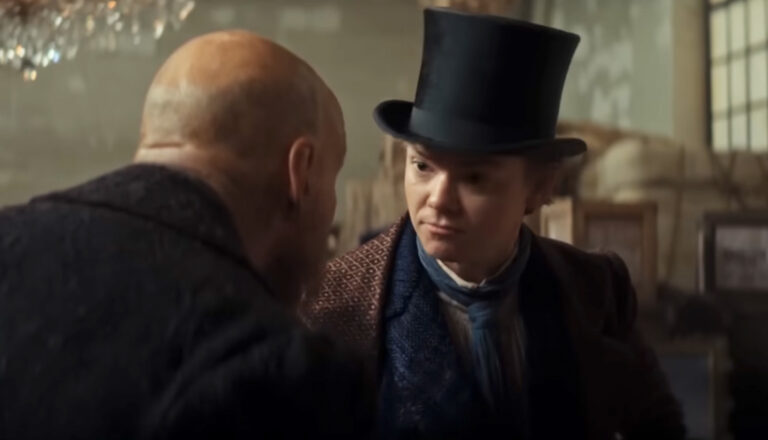
Oliver Twist’s Artful Dodger isn’t 13 anymore: He’s an adult. And being an adult comes with more grown-up problems.
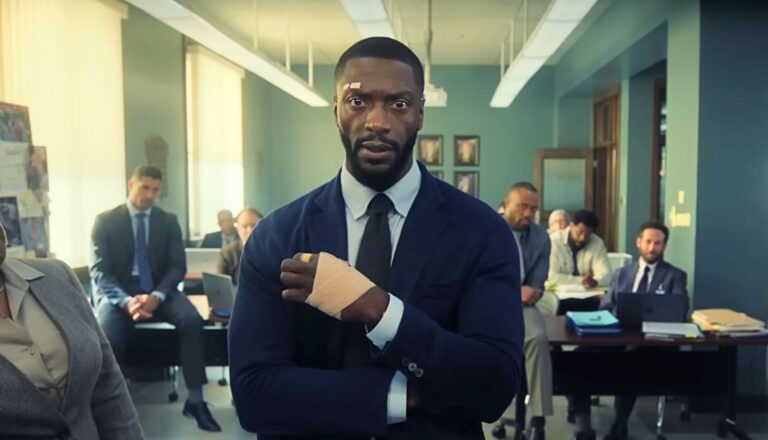
Though it’s compelling, the content concerns in Prime Video’s ‘Cross’ might be enough to cross it off your watch list.
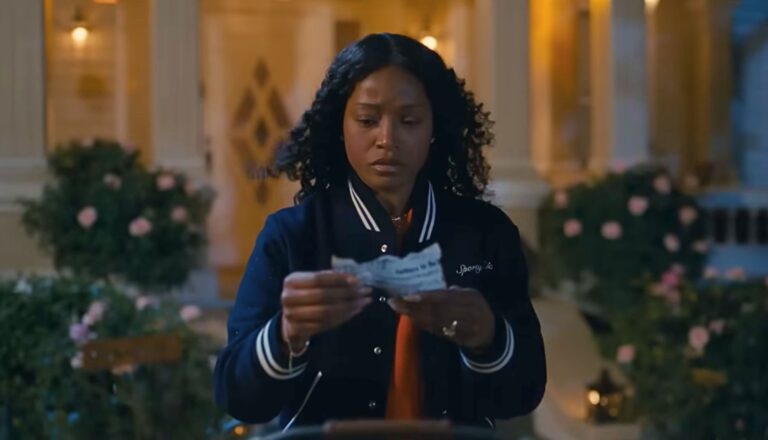
‘The ‘Burbs’ is Peacock’s attempt to adapt the 1989 movie of the same name. But a fresh coat of paint doesn’t hide the content issues.